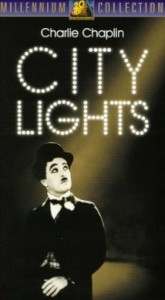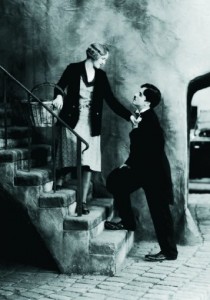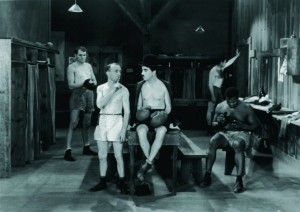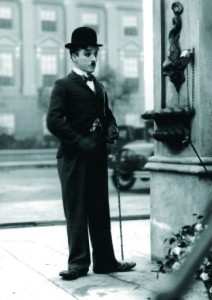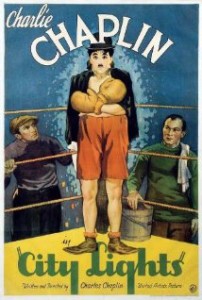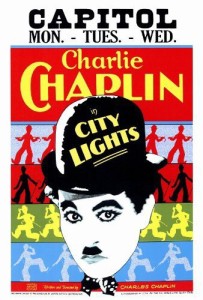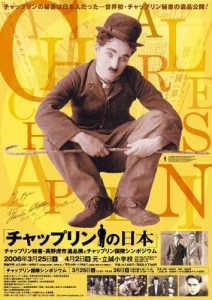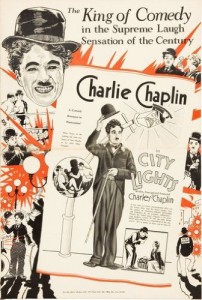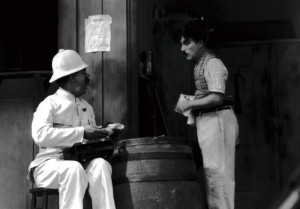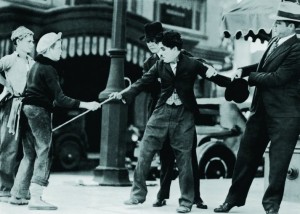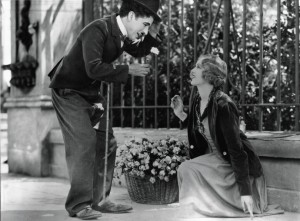City Lights ***** (1931, Charles Chaplin, Virginia Cherrill, Florence Lee, Harry Myers, Hank Mann, Allan Garcia) – Classic Movie Review 1043
Writer-director Charles Chaplin’s still-renowned, often brilliant 1931 comedy classic is a silent movie, even though he made it three years after the talkies had come in. It is over-burdened with sentimentality from another age but it’s also packed with inventive ideas and funny moments.
Chaplin also stars as in his usual, quintessential character as The Tramp, who in the story here is struggling to help the blind Flower Girl (Virginia Cherrill) he has fallen in love with. The poor little Tramp wants to pay for her operation so that she might be able to see again and the flower girl thinks that the mute tramp is wealthy.
Happily, it is still possible to fall for the all-too-manipulative Victorian-style mix of antique comedy and sentimentality and there are more pathos than laughs. Even if it can seem alien by today’s standards, the film has a simple purity and sweet poetry whose integrity, beauty and charm still shine through.
The highlight of all the many amusing sequences in the one when The Tramp befriends a boozy, Eccentric Millionaire (Harry Myers) who recognises him only when he’s drunk. Also is the cast are Florence Lee as The Blind Girl’s Grandmother, Hank Mann as A Prizefighter and Allan Garcia as The Millionaire’s Butler. As you see, there are no character names, they are just archetypes.
In 2007, the American Film Institute ranked this as the number 11 Greatest Movie of All Time. Not everybody will agree with this verdict, but it’s an interesting one. Orson Welles went further and said it was his favourite movie of all time.
Chaplin was so popular with the public and powerful in Hollywood in 1931 that he could make the film as a silent (albeit with recorded music composed by Chaplin himself) when the American industry had converted to sound. Winston Churchill visited the set and Chaplin took a break to make a short film with him. When City Lights opened on 31 January 1931, Albert Einstein joined Chaplin at the cinema. When the film opened in England, George Bernard Shaw joined him.
Chaplin, whose relationship with Cherrill was not friendly, fired her when she arrived on set late from an appointment. He intended to reshoot the film with Georgia Hale, his heroine from The Gold Rush (1925), but he had spent too much time and money to start over. Cherrill offered to come back to work – at double her original salary.
It was in production for over three years, from 31 December 1927 to 22 January 1931, and shooting took 180 days.
Chaplin went on to make another silent comedy nearly a decade after the advent of sound – Modern Times, his inventive and witty 1936 satire on modern factory methods. But by 1952 Chaplin was accused of anti-Americanism. After Chaplin sailed to London for the 16 October 1952 world premiere of his last American film Limelight, his re-entry permit to America was revoked because of alleged Communist Party ties. An anti-Chaplin frenzy caused cancellation of showings of Limelight in other cities after screenings in New York and East Coast cities. Limelight wasn’t shown in LA till 1972.
‘I cry in the cinema all the time, every time I see the end of Bicycle Thieves or City Lights. It’s the only place, almost never in life.’ -Woody Allen.
© Derek Winnert 2014 Classic Movie Review 1043
Check out more reviews on http://derekwinnert.com

